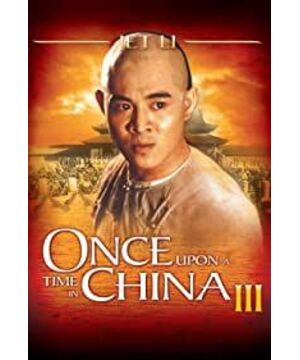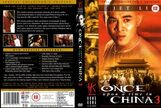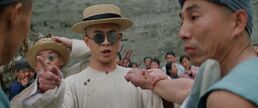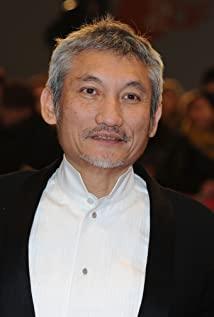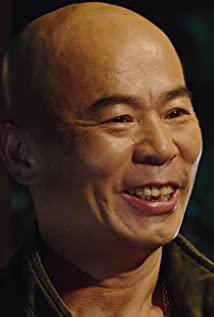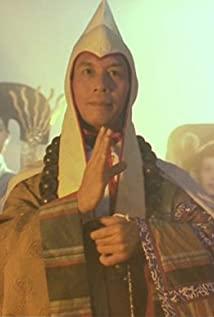In 1993, riding the east wind of the first two films, Huang Feihong's The Lion King was released. Now, looking back at this movie, when the voice of a man's self-improvement rang out, Huang Feihong used the magic trick of Foshan Shadowless Footwork, and his heart was still surging, and a heroic spirit emerged spontaneously. This is indeed the temperament of a commercial film, with wonderful martial arts action, humorous and humorous dialogue, and to become a classic, he has a thought-provoking core in addition to business.
In the 1980s, Tsui Hark heard Wang Mingquan sing "The Brave Chinese" in a restaurant. He was very moved, and because of this, he felt the mentality of the Chinese people to be self-improving, and he saw Guan Dexing's "Once Upon a Time" at home late at night. connected. We love Wong Fei Hung because he represented a predominantly male family from start to finish. Master Guan Dexing and Master Liu Zhan talked about Chinese issues and ethics issues in Baozhilin, and they also shared it with them. Therefore, after the filming of "The True Color of Heroes", Tsui Hark considered re-shooting "Once Upon a Time". However, this is not an arrogant patriotic movie with the main theme. In the movie, Tsui Hark not only showed Huang Feihong as powerful as a super Saiyan, but also powerfully ridiculed the inferior roots of the Chinese people at that time - ignorance and ignorance. As the Russian romantic patriot Chadayev wrote in his letter, "I have not learned to love my motherland blindfolded, head bowed, and mouth closed. I have found that only when a person clearly knows his motherland, To be a man of benefit to the motherland; I think that the time of the blind lover is over, and now we must first dedicate ourselves to the motherland of truth."
And there are countless movies about Huang Feihong. Why did Mr. Xu choose Huang Feihong? Why are Hong Kong people so keen on Wong Fei-hung? This may be related to Hong Kong's historical status. Law Dayu sings in the song "The orphans of Asia are crying in the wind, their yellow faces have red mud, their black eyes have white fear, and the west wind sings a sad song in the east. .” Although this is Taiwan, but Hong Kong is not the same. As China's earliest colony, Hong Kong has been influenced by Western thought for more than 100 years, and it is called the intersection of Eastern and Western cultures, but who can understand the loss of Hong Kong people under the impact of such contradictions. They have the Four Books and Five Classics in one hand, and the wealth of the country in the other, so how to walk on the tightrope becomes a problem. Therefore, Huang Feihong was represented in this way. A boxer of the last empire, who lived in an era when new things appeared frequently, and a westernized thirteenth aunt. Although he sticks to the connotation of being Chinese (the clear master-disciple relationship with Ah Kuan), he is constantly tentatively accepting new things (steam machine medicine). No matter how new he is, he is still Chinese, and things in the West are the stone of other mountains after all. The final solution to the problem is still your own fists and feet. Wong Fei-hung also echoed the footsteps of Lion Rock, and continued to encourage Hong Kong people to move forward fearlessly and fearlessly in difficult times.
Compared with the first two, the location of this story has become the capital, which may be slightly inferior to the first two in some respects. But in this movie, there is a character who played an important role in my childhood, Ghost Foot Seven, a character like Zhang Fei - a driver pulling a cart at Xi'an Gate, for his lofty martial arts dream, he devoted himself to Zhao Tian Under Bamen, he successfully opened up a side business. In this part, the only blow that hurt Huang Feihong was from his feet. As a commoner at the bottom, everything he did, in order to make his own life, or to be invincible all over the world, his thoughts were always so simple, and living in his own small circle created his ignorance. So, a tragic scene appeared downstairs in Sanxiao on that rainy night. Ghost Foot Seven went to Zhao Tianba to get a red envelope. Before that, the director did not spend a second to explain Zhao Tianba's feelings for Ghost Foot Seven. So we understand that Zhao Tianba has no love for Guizu Qi. Even later, Guizuoqi was rescued by Huang Feihong, and Guizuoqi became an apprentice in a confused way, you can see his "simpleness".
As far as bosses are concerned, Zhao Tianba in this movie is really weak, and he was ko in the last move. But this one focuses on group fighting, a popular sport that has been loved by the common people since ancient times. Some people say that the group fights are too messy to show the true strength of Master Huang, but I think this is the inheritance of the first two parts, from the lessons to those ignorant people, invaders and bureaucrats, to the enlightenment of the whole nation. From some people who open their eyes to the world, we can see that they start to use steam engines, watch movies, throw old lion heads, and say they love tiger oil; while for those who are still blindfolded, head down, and mouth closed, perhaps only force it to change.
We don't need to rationally analyze Hitchcock's films like Truffaut. The director has already said all this through Huang Feihong's mouth at the end. We must not only have enthusiasm, but also think. "Now the gold medal is in my hands, Huang, it's not that I won. The adults held this "Lion King Hegemony" in order to show the power of our people. So many people were killed and injured. In front of the world, we all lost. See, we not only need to practice martial arts and strengthen our body to fight against foreign enemies, but the most important thing is to expand the integration of people, wisdom, and martial arts. That is the way to enrich the country and strengthen the people. Whether a mere brand can change the national destiny, please think twice. This gold medal is reserved for You can commemorate it. Farewell!"
We can't say how far-sighted the director is, as written in the postscript of "Swordsman": insinuating novels do not make much sense, the political situation will change soon, and only by depicting human nature can longer-term value.
Perhaps, it can only be said that something is moving in the direction we fear.
View more about Once Upon a Time in China III reviews


